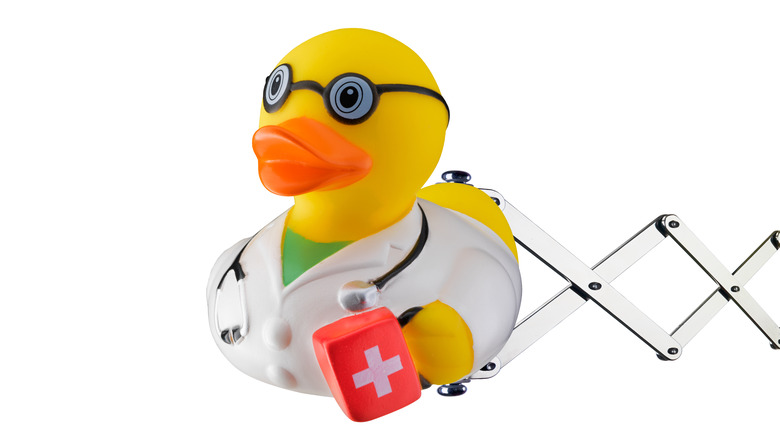How Did Fake Doctors Get Nicknamed Quacks?
The medical profession is among the most challenging and vital to all of society. It's beset by all the ailments the human race has to offer, from sniffles to broken bones and the most terrible illnesses. According to Statista, 2019 saw 36.2 million people admitted to hospitals in the United States alone.
Sadly, though, there have been some unscrupulous people who have tried to exploit those needing remedies or medical attention for their own gain. Fake doctors have come to be deemed as "quacks," but the old term doesn't call into question the scruples of ducks.
According to Mental Floss, "quack" is a shortened form of the Dutch word "kwakzalver" ("quacksalver" in old Dutch). By the 17th century, it seems, the word's meaning had evolved from referring to those who used traditional recipes and remedies to treat illnesses to those who claimed to have medical expertise they did not possess.
The law quacks down on quacksalvers
According to the Deccan Chronicle, outbreaks of cholera in the 19th century led to quacks and their shenanigans becoming widespread across the continent of Europe. It's easy to see how desperation could drive people to cling to any hope of a remedy, and this was exactly what quacks exploited.
The United Kingdom's Medical Act of 1858 was one attempt to address the issue. The document states, "It is expedient that Persons requiring Medical Aid should be enabled to distinguish qualified from unqualified Practitioners," and this is what it ensured (per legislation.gov.uk). Qualified medical practitioners, or those who would later qualify, were required to register themselves as such. By the same token, those who were convicted of any crime could find their names struck from the register.
The ethics of doctors and their medical colleagues have been vital to everything they do since the Hippocratic Oath was written around 2,500 years ago (per UCLA). As the University of Exeter reports, the oath includes a promise from new medical professionals to "practice medicine with integrity, humility, honesty, and compassion," and, "recognize that the practice of medicine is a privilege with which comes considerable responsibility." There's no room for quacksalvers in the oath, or in the industry.

